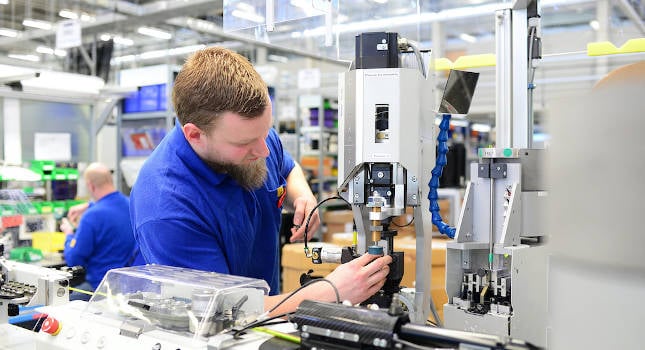Expansion strengthens Germany as a location for innovation
The VDMA is calling on the future German government to further strengthen the instrument of tax-based research funding. “The competitiveness and technological performance of our industry must be the maxim of every new federal government from autumn onwards,” Rauen stresses. “Good things like the research allowance can always be made even better.”
According to ZEW estimates, for example, doubling the tax base would mean an additional nearly 200 million euros in future funding for mechanical and plant engineering alone.
“This more potential will help companies to tackle transformation processes, for example towards climate-neutral production and a sustainable economy, even more quickly,” explains the VDMA Deputy Managing Director. The joint effort for a broad use of the research allowance must not slacken now. Politics, the certification body and the VDMA are all pulling in the same direction here with a broad range of information and advice for companies, emphasises Rauen.
Response from the Federal Government Allows Industry Comparison for the First Time
The response from the Federal Government to a minor interpellation from the FDP parliamentary group (subject matter 19/31672) shows that as of 30 June 2021, a total of 2417 applications for the granting of a certificate have been received by the certification body. Of these, 491 came from the mechanical and plant engineering sector. The manufacturing sector is followed by electrical engineering/DV with 268, chemicals/pharmaceuticals with 186, and motor vehicles/vehicle parts with 58 applications. Across all branches of industry, the share of positively approved projects has been 83 percent so far, including mechanical engineering. There are relatively few differences between individual company sizes or sectors.
Source: VDMA




 Copyright 2017-2025 All rights reserved.
Copyright 2017-2025 All rights reserved.